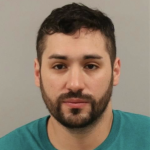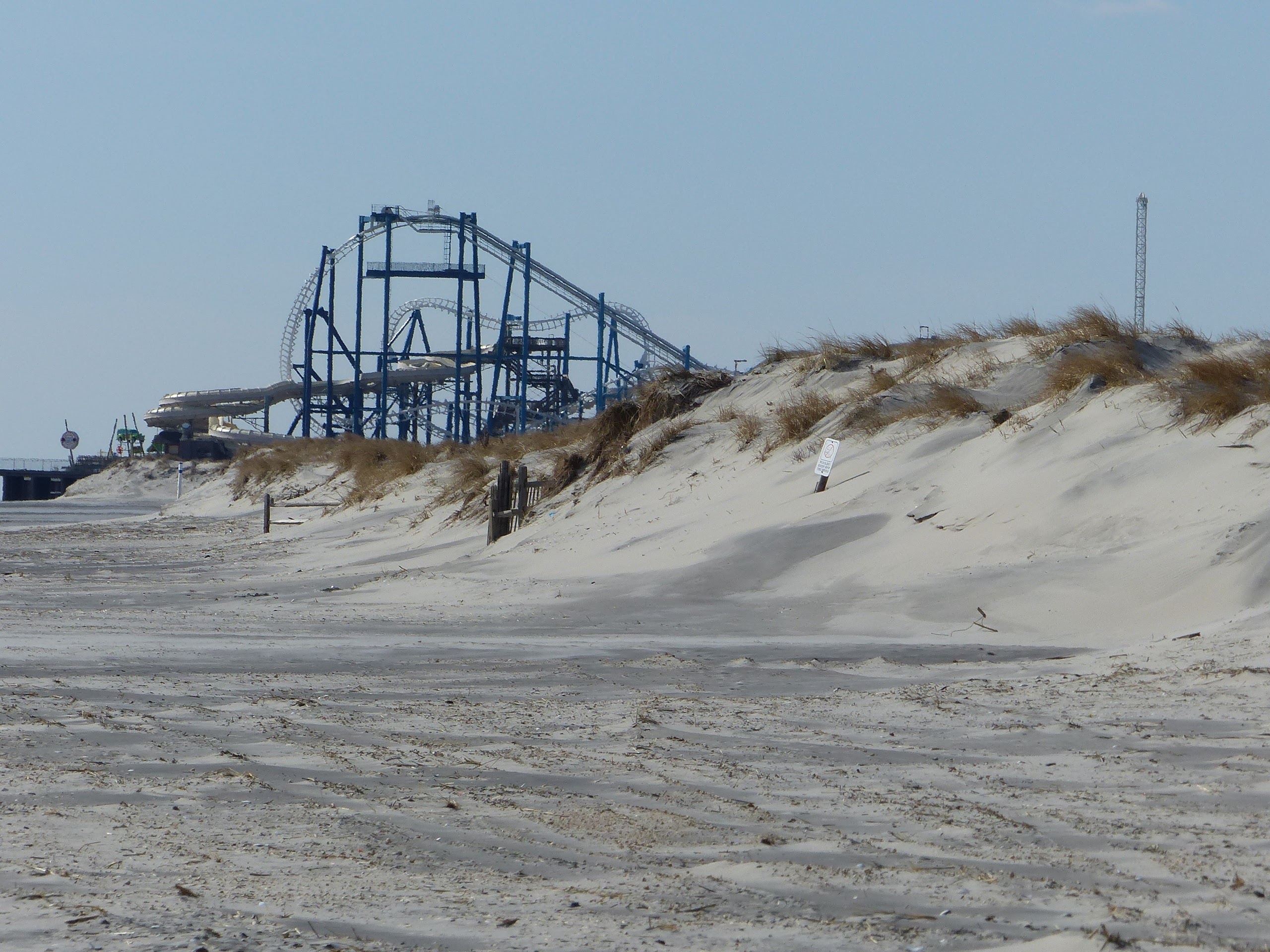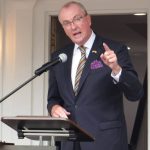Today is Veterans’ Day. Solemn ceremonies will be held throughout the county, many at 11 a.m., the hour when the Armistice was signed in 1918 to end the First World War.
Some will attend those events, mostly veterans or those who lost family members of friends in a war. Unfortunately, many others will ignore the tributes. They have no time for such stuff. They enjoy the freedom with none of the cost.
To them, Veterans’ Day is another day off, an opportunity to sleep late, shop for dubious bargains, or generally take it easy. It may occur to them this is, in fact, a special day when the mail is not delivered or that long-awaited parcel is not delivered via United Parcel Service.
At 2 p.m., U.S. Rep. Frank LoBiondo plans to attend and be featured speaker at Cape May County’s united ceremony at the Veterans’ Cemetery on Crest Haven Road, Court House.
Of all the honors bestowed upon elected officials, retired generals and admirals, and some veterans who have “been there, done that,” the occasion to speak at such solemn events is one of the greatest. Yet what can any of them say that has not already been said?
Perhaps it is the opportunity to personally extend a word of thanks to aging veterans that makes it all worthwhile.
Most veterans will shrug off such words of gratitude. Even highly-decorated veterans will not want to shine glory light on themselves. The real heroes are the ones we never heard about. They simply did their duty, maybe lost a limb or their life to save a buddy. They might have run out into an open field to aid a fallen comrade, to hear a last word from a dying friend, “Tell my wife I love her so much,” or “Mom, where are you? Mom?”
Such things stay in one’s memory long after the shells stop exploding and the years pass into decades.
How can veterans, who have been to the farthest corners of the earth, fighting for God and country, be thanked? Words certainly can’t fully express gratitude, still they must be voiced. Society must do what it can to offer a hand and be there to help an aging veteran.
I often wonder what I would say to a gathering of veterans, some much older and who had seen far worse things than I have. Yes, I, too, wore the uniform, served where I was sent, followed orders that sometimes made no sense, and after the passage of time, came home unscathed.
How could I address a vet in a wheelchair who had no legs, because he stepped on a land mine? What words would I say to a blind comrade who lost his sight after taking a bullet through his skull?
If I offered humble thanks on behalf of a grateful nation in a 20-minute speech, would that vet comprehend who still awakens in the middle of the night after hearing his mates screaming for help as bombs explode in his mind?
President Lincoln must have fully understood similar thoughts as he penned the Gettysburg Address. On that chilly Nov. 19, 1863, amid a new graveyard for soldiers on one of the Civil War’s greatest battlefields, Mr. Lincoln delivered an address that won little acclaim in the newspapers of the day.
The war-weary chief executive gave a speech that veterans of the day must have thought was way too short for such an auspicious occasion. They probably wondered why the President would travel all the way from Washington to Gettysburg to speak for less than five minutes after other speakers waxed too long for anyone’s benefit.
In retrospect, what could the gaunt man from Illinois say that had not already been said to heartbroken mothers and fathers, wives and children of dead or crippled soldiers?
In 279 immortal words, this is what Mr. Lincoln said that day. They are apropos especially on any Veterans’ Day directed to any soldier, sailor, airman, Marine or Coast Guard member:Four score and seven years ago our fathers brought forth on this continent, a new nation, conceived in Liberty, and dedicated to the proposition that all men are created equal.
Now we are engaged in a great civil war, testing whether that nation, or any nation so conceived and so dedicated, can long endure. We are met on a great battlefield of that war. We have come to dedicate a portion of that field, as a final resting place for those who here gave their lives that that nation might live. It is altogether fitting and proper that we should do this.
But, in a larger sense, we can not dedicate — we can not consecrate — we can not hallow — this ground. The brave men, living and dead, who struggled here, have consecrated it, far above our poor power to add or detract. The world will little note, nor long remember what we say here, but it can never forget what they did here. It is for us the living, rather, to be dedicated here to the unfinished work which they who fought here have thus far so nobly advanced. It is rather for us to be here dedicated to the great task remaining before us — that from these honored dead we take increased devotion to that cause for which they gave the last full measure of devotion — that we here highly resolve that these dead shall not have died in vain — that this nation, under God, shall have a new birth of freedom — and that government of the people, by the people, for the people, shall not perish from the earth.







